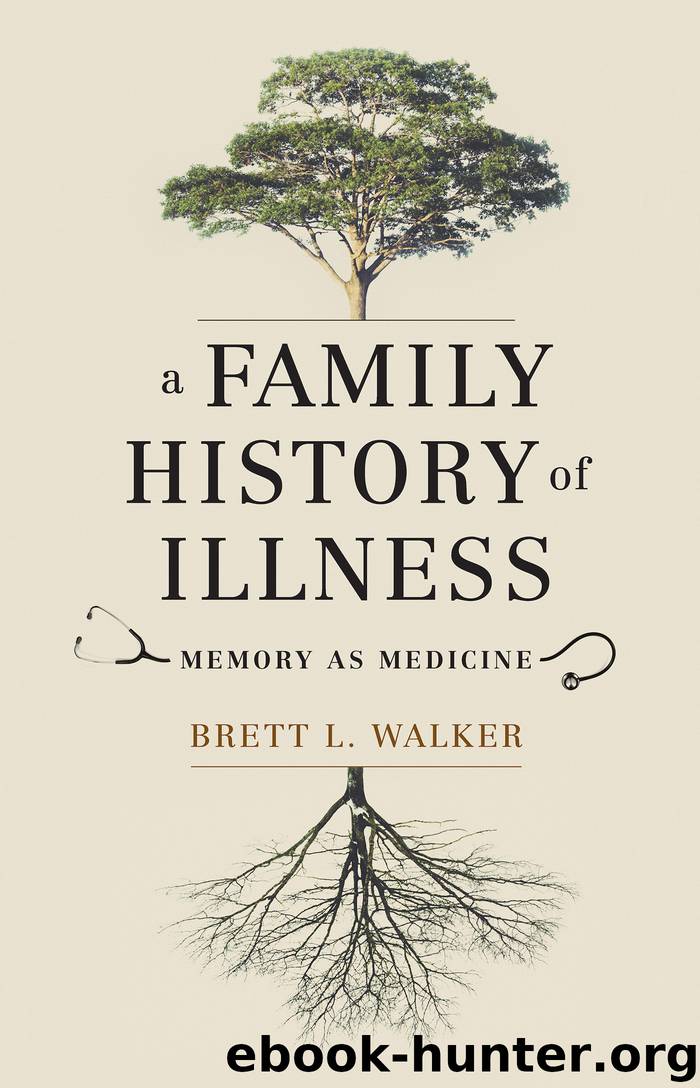A Family History of Illness by Brett L. Walker

Author:Brett L. Walker [Walker, Brett L.]
Language: eng
Format: epub
ISBN: 9780295743042
Publisher: University of Washington Press
Published: 2018-01-15T07:00:00+00:00
I first discovered the power of historical context in understanding the world when I took a Western Civilization course at the College of Idaho, a wonderful liberal arts college that changed my life in numerous ways. The persistent obsession with Montana farm life, the one that had drowned out everything else in my cognitive world, including schoolwork, faded abruptly as primitive visions of historical patterns consumed my newly awoken academic imagination. For the first time in my life, I actually became a student. History, more than any other field, explained the world. I had told my parents that I did not want to go to college after graduating from high school, but I reluctantly agreed to give it a try for a semester. I do not think I called them until Thanksgiving, several months later. I became consumed by my new academic passion and Idaho’s drinking age of nineteen. I enrolled in a wide spectrum of courses in my major and studied everything from classical and Asian history to US intellectual history and the Holocaust. I also became intensely interested in geology, in large part because it analyzed change across time and explained why the physical word around me looked the way that it did. The analysis of change over time just resonated with me. I quit the ski team after realizing my skills were grossly inadequate compared to those of the fast Canadian racers on my team, and I began focusing on my studies. It was slow going, as I had twelve years of academic disinterest and lackluster performance to overcome, particularly in my abysmal writing. In higher education, there is much discussion about what entices students into successful learning. For me, the recipe was simple, and I suspect that despite the millions we spend on the “student services” industry in higher education, it still is: the talent and charisma of my superb teachers was irreplaceable (and I have never forgotten that golden rule in my own approach to the classroom).
Obviously, when I walked into that Western Civilization class in 1985, I had no idea of the momentous shifts that the discipline of history had undergone in the preceding decade. In some respects, historians had started to reject grand constructed patterns for deconstructed microhistories, because they viewed the world’s pattern constructors as biased people in positions of patriarchal, capitalist, sectarian, or kinship-based power. These patterns were no longer natural, moreover: they were fabricated, invented out of thin air, to legitimize that power. I started the study of history when the discipline was in the throes of what would become known as historical deconstructionism, the dismantling of the framework of past historical models in favor of the “linguistic turn,” or “cultural turn.” If the nineteenth-century father of the academic discipline of history, Ranke, had urged historians to show the past “as it really had been,” positioning the historian as a narrator more than as an analyzer of the past, then the field I walked into was highly analytic, with less empirical description, because critics viewed narrative itself as just another cultural invention.
Download
This site does not store any files on its server. We only index and link to content provided by other sites. Please contact the content providers to delete copyright contents if any and email us, we'll remove relevant links or contents immediately.
Nudge - Improving Decisions about Health, Wealth, and Happiness by Thaler Sunstein(6657)
iGen by Jean M. Twenge(4714)
The Fire Next Time by James Baldwin(4364)
Adulting by Kelly Williams Brown(3701)
The Sports Rules Book by Human Kinetics(3612)
The Hacking of the American Mind by Robert H. Lustig(3597)
The Ethical Slut by Janet W. Hardy(3531)
Captivate by Vanessa Van Edwards(3320)
Mummy Knew by Lisa James(3179)
In a Sunburned Country by Bill Bryson(2963)
The Worm at the Core by Sheldon Solomon(2945)
Ants Among Elephants by Sujatha Gidla(2938)
Suicide: A Study in Sociology by Emile Durkheim(2621)
The Slow Fix: Solve Problems, Work Smarter, and Live Better In a World Addicted to Speed by Carl Honore(2583)
Humans of New York by Brandon Stanton(2387)
Handbook of Forensic Sociology and Psychology by Stephen J. Morewitz & Mark L. Goldstein(2385)
Blackwell Companion to Sociology, The by Judith R. Blau(2324)
The Happy Hooker by Xaviera Hollander(2280)
Outliers by Malcolm Gladwell(2270)
